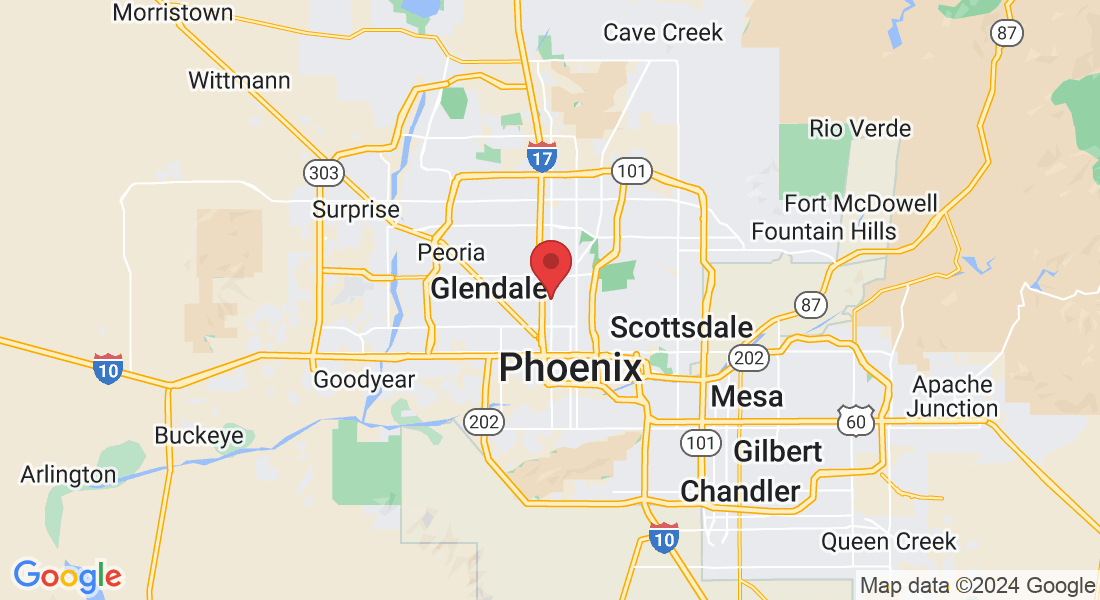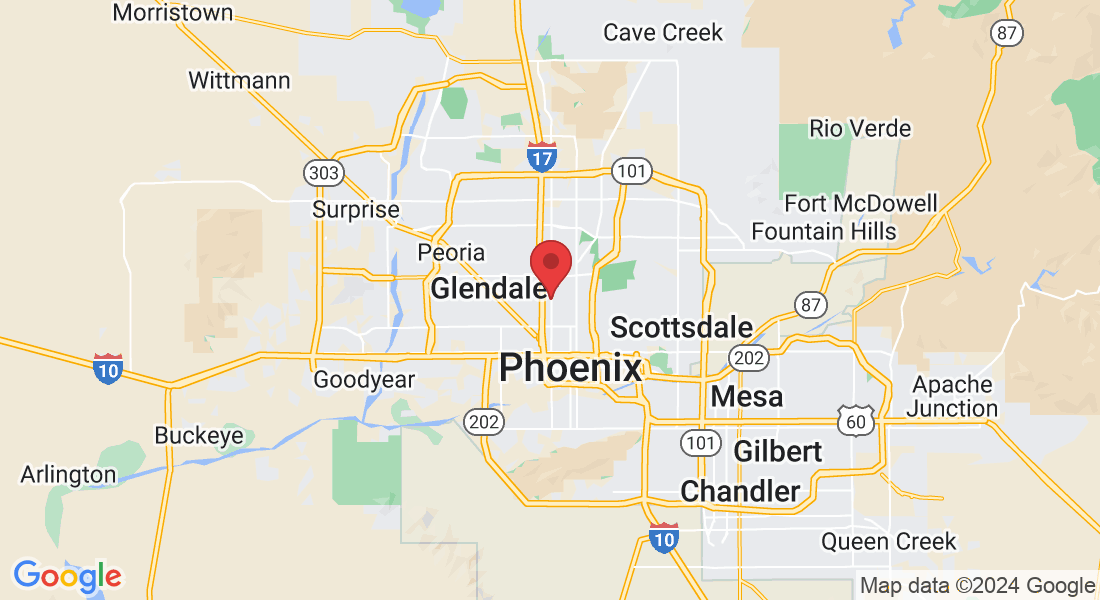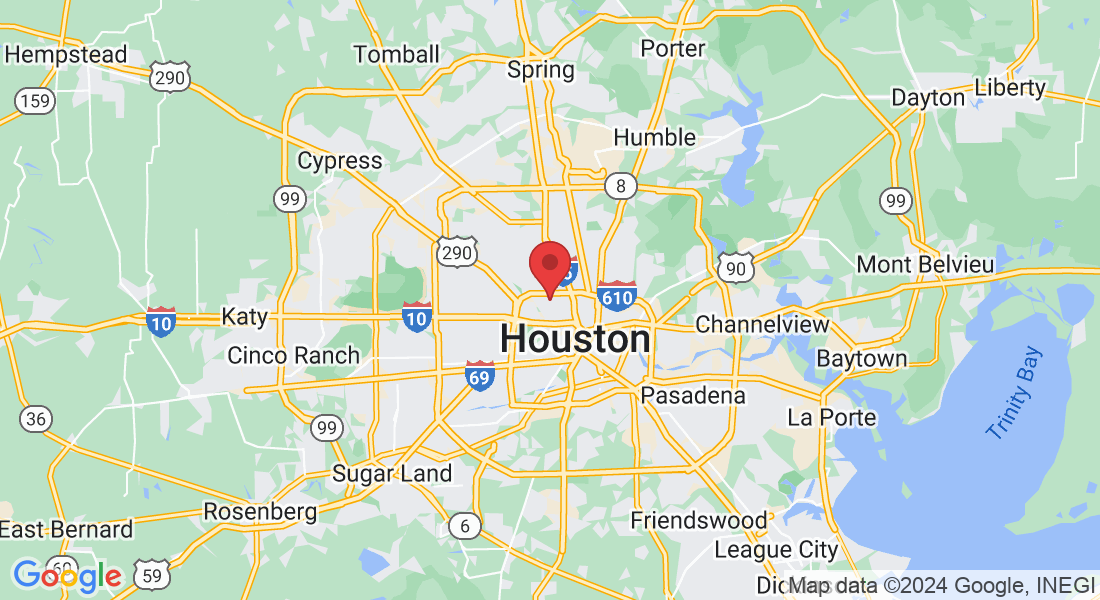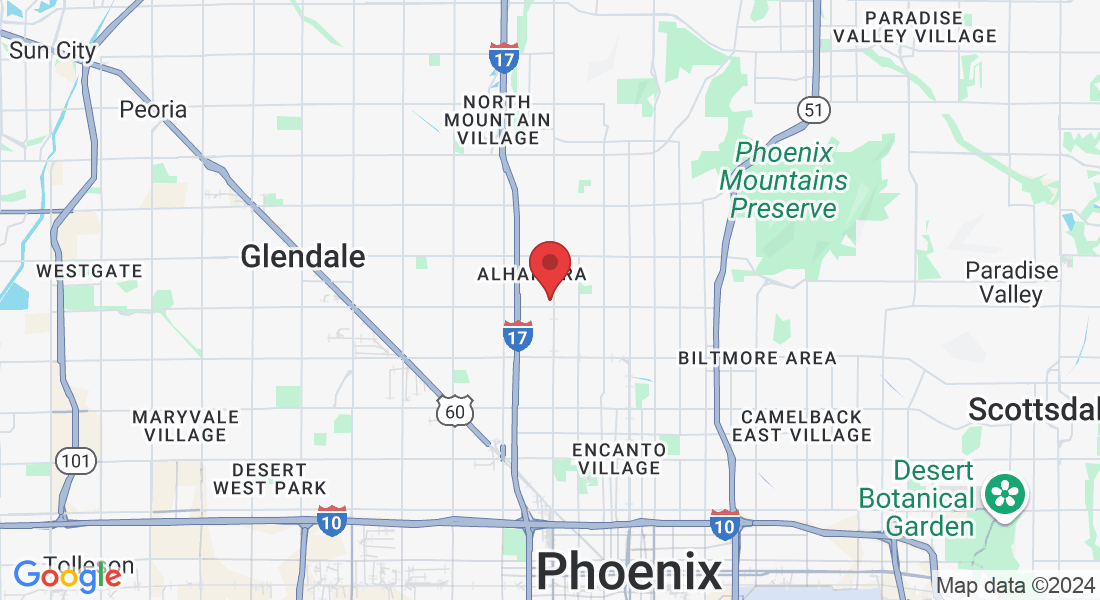Meet Our Doctors
Leading The Way In Cutting Edge Medical Procedures
Elite Board-Certified Interventional Radiologists
Did You Know ?
In total, it takes approximately 14-15 years of post-secondary education and training to become a board-certified interventional radiologist. They expertly blend cutting-edge medical imaging technology with minimally invasive techniques for precise, smarter, safer healthcare solutions.

Dr. Drew Hunter, MD
Interventional Radiologist
Drew Hunter, M.D. is a board certified Vascular/Interventional and Diagnostic Radiologist at the Vascular Institute. Dr. Hunter received his medical degree from Spartan Health Sciences University in 2004 followed by an additional 7 years of post graduate residency and fellowship training including 1 year of surgery at Maricopa County Hospital, 1 year of physical medicine & rehabilitation at University of Chicago and then 4 years of diagnostic radiology at Maricopa County Hospital. He then furthered his education and training with an additional 1 year of fellowship training in Vascular/Interventional Radiology at University of South Florida in Tampa, FL. He completed all of his training in 2011 and has been practicing full time since then where he has primarily been hospital based at local level one trauma centers in the valley.
He is currently credentialed at Dignity Health Chandler Regional and Mercy Gilbert Hospitals as well as Flagstaff Medical Center.
Dr. Hunter is a highly skilled and extremely compassionate physician. He truly cares about his patients and strives for excellence to achieve the best outcome so that they may enjoy a better quality of life.
Vascular Institute Phoenix
6036 N 19th Ave, Suite 204 Phoenix AZ 85015

Dr. Sandeep Rao, MD
Interventional Radiologist
Dr. Sandeep Rao is a board-certified Interventional Radiologist and Diagnostic Radiologist at the Vascular Institute. Dr. Rao received his medical degree from Texas Tech University of Heal Sciences Center in Lubbock, and continued onto his residency program at Ohio State University Hospital. Dr. Rao furthered his education by specializing in Vascular & Interventional Radiology through Fellowship at John Hopkins University.
He has shared his expertise through working with multiple hospitals across Texas- such as Hospitals of Providence Memorial Campus and Hospitals of Providence Sierra Campus in El Paso, Texas.
Dr. Rao is versatile in his knowledge & expertise. On top of specializing in Interventional & Vascular Radiology, he has completed a residency in Surgery at the Zucker School of Medicine, as well as received an MBA in Health Care Administration at the Texas Tech Rawls College of Business Administration.
Vascular Institute Phoenix
6036 N 19th Ave, Suite 204 Phoenix AZ 85015

Dr. Sharma, MD
Interventional Radiologist
Dr. Sharma is a Vascular and Interventional Radiologist, Board Certified by the American Board of Radiology since 2017.
He was born and raised in Texas and is a native of Houston, graduating with honors from Rice University and continuing to medical school and residency at Texas A&M Health Science Center College of Medicine and Baylor, Scott and White respectively.
After completing his fellowship training in Vascular and Interventional Radiology at the University of Miami, Dr. Sharma returned to Houston and opened his practice with the intentions of providing exceptional patient care and positive outcomes.
Vascular Centers of Texas
427 W. 20th St. Ste 300
Houston, TX 77008
3395 Plaza 10 Dr. Ste A
Beaumont, TX 77707

Dr. John Smith
Interventional Radiologist
Dr. John Smith, MD, is a highly skilled interventional radiologist with over 15 years of experience in minimally invasive procedures. He earned his medical degree from Harvard Medical School, followed by a residency in Diagnostic Radiology at Johns Hopkins University and a fellowship in Vascular and Interventional Radiology at the Cleveland Clinic. Dr. Smith is board-certified by the American Board of Radiology and is an active member of the Society of Interventional Radiology.
Specializing in treatments for chronic knee pain, peripheral artery disease, and uterine fibroids, Dr. Smith is dedicated to providing personalized and compassionate care. He has performed over 2,000 successful procedures, prioritizing patient safety and comfort. Dr. Smith's extensive training and commitment to cutting-edge techniques ensure that patients receive the highest standard of care.
2222 W. Pinnacle Peak Rd Phoenix, AZ 85027
We perform a non-surgical procedure to treat chronic knee pain associated with osteoarthritis.

Precision Procedure
Genicular Artery Embolization (GAE)
Genicular Artery Embolization is a specialized procedure within our suite of Precision Procedures. It involves carefully reducing the blood flow to specific areas in the knee that are causing pain. This personalized and targeted approach helps reduce inflammation and pain, offering relief without the need for major surgery.
No Major Incision
No Stitches
Fast Relief
Rapid Recovery
Less Risk Than Traditional Surgery
Root Cause Treatment
Enhanced Mobility
Are you a good candidate for our procedure?

Call if you suffer from one or more of the following:
Knee Swelling
Pain in one or both knees
Joint stiffness
Knee tenderness
Limited mobility
Knee pain lasting >1 year
Failed conservative treatments - Physical Therapy, Brace, Injections, OTC meds
Our Advantages
Escape the dread of invasive surgery and the risks tied to medication side-effects. Reclaim your nights for restful sleep, dive back into cherished activities, and reconnect at social gatherings you've missed. Sidestep the pitfalls of inactivity and insomnia.
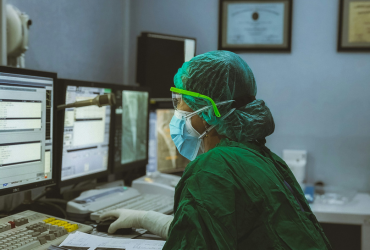
Precision Relief Mapping
We utilize advanced medical imaging to create a detailed map of your problem area.
Precision Procedures
With the detailed map in hand, we perform a gentle, precision guided procedure, targeting the specific problem area while minimizing damage to surrounding structures and tissue.
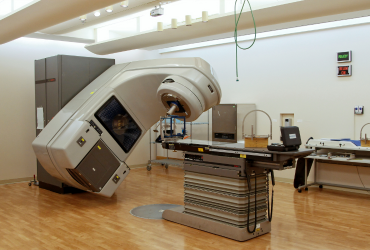

Personalized Treatment
Precision relief mapping allows us to create a detailed blueprint, identifying your unique pain generators. Treatment is deployed precisely to these locations for maximal relief with minimal intervention.
Rapid Recovery
No major incision, no stitches, reduced downtime. Our gentle targeted approach allows for a quick return to normal activity.
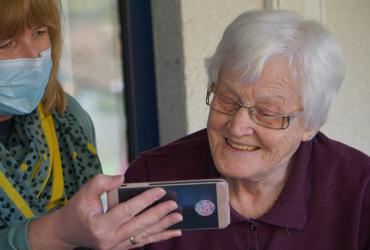

Why Knee Pain Usually Worsens
Knee surfaces start to wear over time (cartilage loss).
Wear and tear signals the body to repair the damage (normal inflammatory process).
Nutrients and blood are sent to the knee in an effort to heal.
Tiny blood vessels start to grow into the joint to deliver more nutrients and blood (swelling).
The knee continues to wear and the tiny blood vessels continue to oversupply the knee with blood (chronic swelling and stiffness).
Your body's attempt to repair the damage actually worsens the problem.
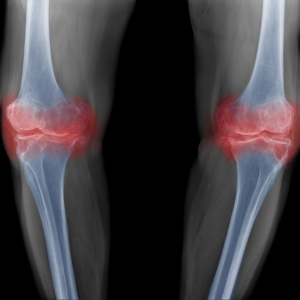
Our Simple Process

Get In Touch
Contact us now to see if you're a candidate for our innovative procedures.

Clinic Visit
If you're a candidate, we'll schedule a clinic visit with one of our doctors. Get expert guidance and a clear path forward.

Procedure Day
The day you've been waiting for! Experience the power of advanced medical imaging technology combined with precisely targeted, minimally invasive procedures.
We Accept Most Major Insurance Plans
Google Reviews
What Our Patients Are Saying

Providers

Locations

Appointments
FAQ
What is genicular artery embolization (GAE)?
Genicular artery embolization (GAE) is a minimally invasive procedure that treats chronic knee pain caused by osteoarthritis. During GAE, tiny particles are gently introduced into the blood vessels of the knee to reduce blood flow, which helps to decrease inflammation and pain.
How does GAE work?
GAE works by targeting and selecting specific blood vessels in the knee that contribute to inflammation and pain. An interventional radiologist uses a thin catheter to deliver tiny particles that obstruct these vessels, thereby reducing inflammation and providing pain relief.
Am I a good candidate for GAE?
You might be a good candidate for GAE if you have chronic knee pain due to osteoarthritis that hasn't improved with conservative treatments like physical therapy, braces, injections, or over-the-counter medications. A consultation with your doctor will help determine if GAE is the right option for you.
What are the benefits of GAE compared to other treatments?
GAE offers numerous benefits, including being minimally invasive with no major incisions or stitches required. Recovery time is typically shorter than traditional knee surgery, and many patients experience significant and long-lasting pain relief. GAE targets the root cause of inflammation, providing a more effective solution for chronic knee pain.
What can I expect during the GAE procedure?
During the GAE procedure, you will receive mild sedation to keep you comfortable. The interventional radiologist will gently introduce a tiny catheter via a small access point in your leg and guide it to the blood vessels in your knee. Tiny particles are then injected to treat these vessels. The procedure usually takes about 1 to 2 hours.
How long does the GAE procedure take?
The GAE procedure typically takes about 1 to 2 hours. After the procedure, you will be monitored for a few hours to ensure your comfort and safety before you can go home the same day.
Is GAE a safe procedure?
Yes, GAE is considered a safe procedure with a high success rate. While complications are rare, they can include pain, bruising, or infection at the catheter insertion site. Your doctor will discuss all potential risks with you and take every precaution to ensure a safe and successful procedure.
What are the potential risks and side effects of GAE?
The potential risks and side effects of GAE include mild pain, bruising, or swelling at the catheter insertion site. Some patients may experience temporary post-procedure pain or swelling in the knee, but these symptoms usually resolve within a few days. Serious complications are rare.
How long is the recovery time after GAE?
Recovery time after GAE is relatively short. Most patients can return to normal activities within a week. You might experience some mild pain or swelling for a few days, but these symptoms generally improve quickly, allowing you to enjoy a better quality of life.
Will I need to stay in the hospital after GAE?
Most GAE procedures are performed on an outpatient basis, meaning you can go home the same day. Some patients may require a short stay for monitoring, but this is typically not necessary.
How effective is GAE in treating knee pain?
GAE is highly effective in treating knee pain due to osteoarthritis, with many patients experiencing significant and long-lasting pain relief. The procedure helps reduce inflammation and improve mobility, allowing you to regain an active and pain-free lifestyle.
Will GAE affect my ability to walk or move?
GAE is designed to improve your ability to walk and move by reducing knee pain and inflammation. Most patients report improved mobility and less pain after the procedure, enhancing their overall quality of life.
Can GAE be used to treat all types of knee pain?
GAE is primarily used to treat chronic knee pain caused by osteoarthritis. It may not be suitable for other types of knee pain, such as those caused by acute injuries or conditions unrelated to inflammation. Your doctor will evaluate your specific case to determine if GAE is the best option for you.
What kind of follow-up care is needed after GAE?
After GAE, you will have follow-up appointments with your doctor to monitor your recovery and ensure the treatment is effective. Regular check-ups will help track your progress and address any concerns you might have.
How soon will I notice symptom relief after GAE?
Many patients begin to notice symptom relief within a few days to a few weeks after GAE. Full improvement can take a few months as the inflammation decreases and symptoms gradually diminish, allowing you to enjoy a more active lifestyle.
Is GAE covered by insurance?
GAE is often covered by insurance, but coverage can vary. It's best to check with your insurance provider to understand your specific benefits and any out-of-pocket costs you might incur. Our office staff can also assist you with insurance-related questions.
What should I do to prepare for the GAE procedure?
To prepare for GAE, follow your doctor's instructions, which may include fasting before the procedure and arranging for someone to drive you home afterward. Your doctor will provide detailed guidelines to ensure a smooth and successful procedure.
What are the long-term outcomes of GAE?
The long-term outcomes of GAE are generally positive. Many patients experience significant relief from knee pain and improved mobility, allowing for a better quality of life. Regular follow-ups with your doctor will help monitor your condition and ensure lasting results.
How do I schedule a consultation for GAE?
To schedule a consultation for GAE, contact us now. Our friendly staff will assist you in setting up an appointment with one of our specialized interventional radiologists, who will evaluate your case and discuss your treatment options. We're here to help you find relief and improve your quality of life.
About Us
True Precision Medical is a team of interventional radiologists dedicated to providing advanced, minimally invasive treatments for vascular health, women's health, men's health, orthopedics, and more. We combine cutting-edge medical imaging technology with precision procedures to offer affordable, effective care, bypassing traditional healthcare system hurdles. Our mission is to deliver fast relief and better outcomes, all while ensuring full transparency and patient education.
Clinic Info
6036 N 19th Ave Suite 204
PHOENIX, ARIZONA 85015
Phone: 480-616-0356
Fax: 480-616-0603
Email: [email protected]
© 2024 True Precision Medical. All rights reserved. Policies. Terms & Conditions.
